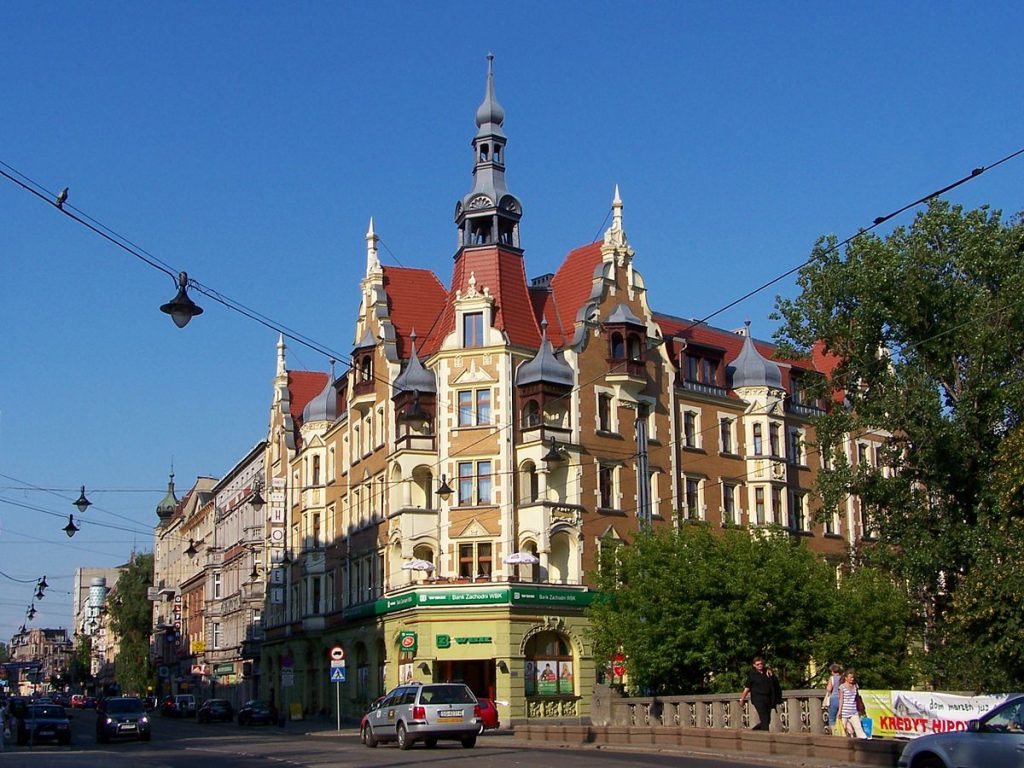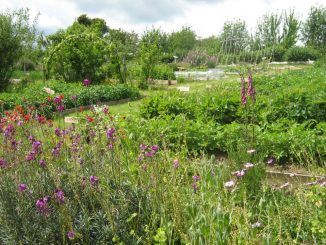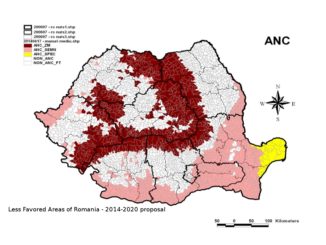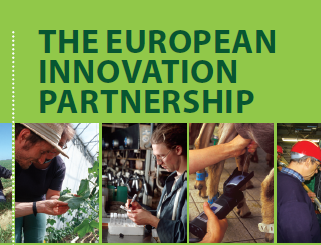
As a major agricultural nation in the east, Poland has a significant interest in how CAP will unfold in the current reform process. While not all regions or sectors are the same in this large country, there are some common considerations. We have commissioned journalist Hans Wetzels to get to grips with CAP and Poland, in particular how Polish farmers and Polish policy makers will adapt to likely changes, including a lower overall CAP budget, greater environmental focus and the new delivery model. How Poland relates to other EU countries, in particular France and Germany, will also play a part in this series. Below we introduce part four, which focuses on smaller producers and how they cope with (or without) CAP supports.
Rafal Serafin sports a big grey beard and talks in a thick British accent. We’ve been driving westward for almost an hour after starting our journey from the old town centre of Kraków. The landscape is hilly, the churches look old and the towns cosy here in the south of Poland. We are in the Malopolska region – just north of the old industrial zone stretching from Kraków, through coal-city Katowice (where the last COP climate summit took place) towards Gliwice in the south west. Besides a thriving woodworking industry, this part of Poland historically has a high number of small (and mostly organic) farms, Serafin tells me.
But over the last years those farmers have been losing out against powerful players entering the Polish production chain. “International supermarket chains like Lidl and Carrefour have taken over the rhetoric of biological production,” Serafin explains. “So in the end also in the ecological food chain most added value stays with the retailers. In the end foreign capital is capitalizing on the backs of Polish farmers. That’s a strong sentiment for populist nationalists to ride on with the European elections coming up. Politicians in Western Europe seem not to understand that in the east it matters how the rural areas will vote.”
Supports at the Small Scale – the Kitchen Incubator
Serafin steers his car through the snow up a steep hill in the small town of Stryszów. There are about 140.000 small farms registered at the Agricultural Chamber in the region. Only about ten percent of those are actually beneficiaries of some form of EU-money.
To be able to offer some form of support to small farmers in Malopolska Serafin teamed up with local activist groups and formed a foundation to build a so-called ‘kitchen incubator’: a collective cooking facility where farmers can turn their raw produce into value-added products like juice or cookies. “Farmers around here are either too small or just don’t know how to apply for European subsidies,” Serafin explains. “In this incubator they can cook jams, bake bread and get practical or legal assistance.”
This facility is part of a larger vision to create a brand new distribution channel directly from small farmers to the consumer in Kraków. Our message to the minister is to regard experiments like this not as competition to vested interests but as possibilities of innovation. Shorter food chains ensure better livelihoods for people in the countryside and gives them the opportunity to stick with producing organic instead of upscaling their production.”
The incubator in Stryszów was opened in September 2016. Photos of production certificates and the official opening line the white walls. started in 2016. The four story building has storage rooms, a big meeting room with a view over the snow-covered hills and even a small shop. The building used to be no more than a storage shed, one of the employees shows me on a photo. The kitchen area looks clean and professional. There are big ovens to bake breads in and heavy machines made of Italian steel to press pears, apples and other fruits into fresh juices. “In the peak months of the year, during harvest time, there would’ve been so many people working here you could hardly find a sport,” Serafin laughs. “But also after a hailstorm farmers would come in to process the fruits that would’ve otherwise left to rot.”
Serafin grew up in Great-Britain after his parents fled Poland during World War II. After the Iron Curtain came down he returned to his motherland. Currently he sits on a government set-up commission to chart the economic possibilities of shorter food chains.
The construction of the facility in Stryszów has been financed from an EU structural fund that is financed by Norway and Switzerland – two non-EU countries that still have to pay financial compensation in order to be part of the European Economic Area. “The money that Norway and Switzerland pay goes straight into a fund for the development of new EU member-states in the east. Foundations or NGO’s can access that on basis of a tendering system. We received 3 million euro’s to create a self-financing food-system by and for small farmers within eight years,” Serafin laughs. They created an association of farmers from Malopolska in which every individual has equal voting rights and started building the incubator.
Serafin’s foundation is talking to big tech companies about building an app (not unlike UberEats) to directly link urban consumers looking to buy fresh farm products to the farmers and producers in surrounding areas. Serafin: “You can talk hard and long about setting up alternatives for the current system. But making it work in practice is often difficult. Regulations concerning processing are just too tight for small farmers.”
Subsidies – how do small farmers in Poland fare?
A lot of these regulations are drawn up in the same Brussels that divides the subsidies among farmers all over Europe. Polish parliamentarian Jaroslaw Sachajko is a member of the populist-conservative Kukiz ’15 movement and chairs the agricultural committee in the Polish parliament (‘Sejm’).
He acknowledges the financial dependence of Polish farmers on EU-subsidies, but is critical about the policies concocted in the European capital. Halfway through 2018 his parliamentary committee presented its agricultural reform program to the Polish government. They come up with a list of rural reforms necessary to increase the competitiveness of Polish farmers on the European market – expecting the government to carry that stance to Brussels where discussions about the new European Common Agricultural Policy (CAP) are ongoing. Despite historical reductions the CAP still represents almost forty percent of the total EU-budget. That is a lot of money. But because EU-farmers are paid their subsidies according to the acreage of their farms, the system doesn’t help small farmers in regions such as Malopolska, according to Sachajko.
“Under the current CAP regime only twenty percent of agricultural holdings benefit from more than eighty percent of direct payments,” Sachajko argues in his spacious working room deep in Sejm. “At the same time, we are not able to ensure additional payments for small farmers so they don’t have the financial resources to develop their agriculture-related activities like food processing or trade. But we must keep in mind that in Poland there is enough room for both small farms and big agricultural holdings.”
That said, it’s worth noting that Poland is in fact one of nine EU member states to avail of CAP redistributive payments. towards smaller farmers. These are “an alternative way to focus income support on smaller farmers by granting an extra payment per hectare for the first hectares below a certain limit.” according to CAP expert Alan Matthews in a post from December 2017. Matthews adds: “however, in Poland, holdings with less than 3 hectares were ineligible for the redistributive top-up which was confined to those with between 3 and 30 hectares of eligible area (who received €40.10/ha).”
On 16 May 2017 the Polish Council of Ministers gathers in Warsaw to decide on the national priorities for the new CAP – at that moment still on the drawing board of the European Commission. The ministers explicitly state a new CAP should guarantee the functioning of the European market while allowing member-states to utilize their comparative advantages in the field of agriculture. Also the ministerial document stresses the importance of producer groups and cooperatives to counter ‘unfair trade practices in the agri-food chain’ and ‘further development of alternative channels of distribution, including direct sales’.
“We need CAP-legislature to guarantee diverse entrepreneurship in rural areas,” Sachajko comments. “Ecological practice is usually automatically practiced by small farmers. We have to realize this is not only good for the environment but also brings in money since there’s a large market for organic fruits and vegetables in Europe.”
Scale, milk, and frothy ecological claims
Despite that roaring rhetoric about small and organic farming – the tendency in Poland, just as in most EU-countries, goes towards more intensive farming. “Policy-wise Brussels and Warsaw are on the same page saying, look, the world is going in that direction and well just have to follow,” Dorota Metera of the new NGO-grouping Living Earth Coalition says. “It’s a scandal Poland still claims to be transitioning to ecological agriculture. Almost all organic milk sold is imported from Germany or Lithuania because many small farms in Poland just stopped production after the European Commission ended the milk quota and they just couldn’t compete anymore.”
Initiatives such as the incubator in Stryszów are more than welcome, she stresses. But they can never be a full-blown solution on an agricultural market still dominated by big capital and where farmers are left to fend for themselves by their political representatives. “The concentration of big farms in Poland is already too high,” Metera explains. “We will have all kinds of environmental consequences to face, from soil erosion, livestock disease such as African Swine Fever or water stress. Unfortunately environmental policies are not a priority for this government, nor for the previous one, when there is money to be made. Fertilizer pollution or ground water problems are easily neglected when you can look at nice country landscapes that draw in tourists during summer.”
CAP in Poland the Series so Far
More on Poland





